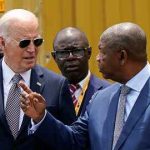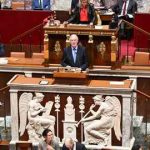According to former Defense Minister Kim Yong-hyun, he is solely responsible for the actions of the military that carried out martial law-related tasks.
The president’s office said that South Korean Defense Minister Kim Yong-hyun has resigned following the chaos brought on by President Yoon Suk-yeol’s temporary declaration of martial law.
“Today, the President accepted the resignation of Minister of National Defence Kim Yong-hyun and approved his dismissal, and nominated Ambassador to Saudi Arabia Choi Byung-hyuk as the new ministerial candidate,” Yoon’s office announced on Thursday.
Kim expressed regret for upsetting and worrying the public. He declared, “All troops who performed duties related to martial law were acting on my instructions, and all responsibility lies with me,” the Defense Ministry reported.
Choi, the ambassador of South Korea to Saudi Arabia, is a retired four-star general.
The change follows Yoon’s declaration of martial law, which he was had to revoke a few hours later after parliament unanimously decided to veto the decision in the face of widespread demonstrations.
Yoon’s declaration of martial law, the first in over 40 years, was reminiscent of previous military-backed governments in South Korea, when officials would periodically issue decrees allowing them to station soldiers, tanks, and armored vehicles on the streets or in public areas like schools in order to quell anti-government protests.
Removal from office
A joint resolution to impeach Yoon for declaring martial law the night before was filed on Wednesday by the main opposition Democratic Party and several smaller opposition groups.
A separate resolution to impeach Kim was previously filed by the opposition parties, who claimed that Kim suggested Yoon declare martial law.
A vote on the Yoon impeachment resolution could take place between Friday and Sunday because it was introduced at an early Thursday parliamentary plenary session. If the proposal is not voted on within 72 hours after its introduction in parliament, it will be discarded by law.
Yoon’s ruling conservative People Power Party agreed on Thursday to reject the approval of the motion, casting doubt on the likelihood of Yoon being impeached. PPP floor leader Choo Kyung-ho informed reporters that his party would reconvene to decide how to block the passage of the motion.
PPP members might just vote against the measure or boycott a floor vote, according to observers.
Support from 200 of the 300 members of the National Assembly, or two-thirds of the assembly, would be needed to impeach him.
Yoon will lose his constitutional authority until the Constitutional Court makes a decision if he is impeached. The second-ranking member of the South Korean government, Prime Minister Han Duck-soo, would assume the duties of the president.






